- 4566
- 0
Sharing Ideas and Updates on LPG in Nigeria and related information to enable effective collaboration within the LPG Value Chain
Could The Drastic Increase Of LPG Prices Affect LPG Autogas Penetration In Nigeria?

Even before the elimination of petrol subsidies, inflation in Nigeria had been steadily climbing, reaching a stunning 25.80% in August, according to the National Bureau of Statistics. This increase reflects the impact of both the removal of petrol subsidies and the devaluation of the official exchange rates on consumer prices.
However, amidst these economic challenges, there is a glimmer of hope in the form of LPG Autogas, touted as a more cost-effective alternative to traditional gasoline. In a recent interview, Prince Bambo Ademuluyi, Chairman of the Auto Gas Committee at the Nigeria Liquefied Petroleum Gas Association (NLPGA) and former Chairman of the LPG group at the Lagos Chamber of Commerce and Industry (LCCI), shed light on the potential of LPG Autogas in Nigeria and its numerous advantages.
LPG Autogas: A Cheaper Alternative
One of the key advantages of LPG Autogas is its affordability. Currently priced at around 358 naira per liter, LPG Autogas significantly undercuts the cost of petrol, which ranges between 580 to 600 naira per liter. This price differential makes LPG Autogas an attractive choice for cost-conscious consumers.
Increasing Demand for LPG Autogas
The interview also highlighted the rising demand for LPG Autogas conversion, not only for vehicles but also for small generators. Consumers are drawn to LPG Autogas due to the substantial cost savings it offers. Prince Ademuluyi shared his optimism by mentioning a recent encounter with an individual who was importing 5 million conversion kits for generators, illustrating the increasing appetite for LPG Autogas.
Advantages of LPG Autogas
Prince Ademuluyi pointed out several advantages of using LPG Autogas. Firstly, it delivers significant cost savings for users, allowing them to save up to 40% on fuel costs when compared to petrol. Secondly, LPG Autogas leads to reduced maintenance requirements for vehicles. This is because LPG Autogas engines run cleaner, resulting in fewer carbon deposits and a more complete combustion process. This not only lowers maintenance costs but also contributes to a cleaner environment.
Subsidies and Government Intervention
The interview also delved into the role of government intervention in promoting the adoption of LPG Autogas. Prince Ademuluyi emphasized that making LPG Autogas conversion more affordable, especially for transporters and civil servants, should be a priority. Subsidizing conversion kits could be a viable approach to incentivize adoption and ensure that cost savings accrue directly to users.
Dispelling Safety Myths
Addressing safety concerns, Prince Ademuluyi underscored that LPG Autogas is inherently safer than petrol. LPG Autogas cylinders are designed to withstand various conditions, including high temperatures, without the risk of explosion. He noted that, despite using LPG Autogas for over a decade, he had never encountered any accidents or safety issues.
A Bright Future for LPG Autogas in Nigeria
In closing, Prince Bambo Ademuluyi expressed his optimism regarding the future of LPG Autogas in Nigeria. He envisioned a landscape where government support and local initiatives would lead to increased LPG Autogas adoption, not only for vehicles but also for power generation in rural areas.
The interview with Prince Ademuluyi highlights the potential of LPG Autogas as a cost-effective and environmentally friendly alternative to traditional fuels in Nigeria. It also underscores the importance of government intervention and industry collaboration in realizing this potential and providing much-needed relief to consumers in a challenging economic climate.
The Soaring LPG Prices in Nigeria - An Alarming Situation
In recent times, Nigeria has been facing a daunting challenge that directly impacts the daily lives and budgets of its citizens: the skyrocketing prices of LPG (Liquefied Petroleum Gas), commonly known as cooking gas. While it was previously considered an affordable alternative to traditional fuels like petrol, the grim reality today is that Nigerians are now shelling out a staggering 1,000 Naira for just 1 kilogram of LPG, a far cry from the previously mentioned price of 358 Naira per liter. This alarming surge in LPG prices demands immediate attention and action from both the government and industry stakeholders.
The Disparity in LPG Prices
The sharp increase in LPG prices has created a stark contrast between the promising potential of LPG Autogas, as highlighted by Prince Bambo Ademuluyi in a recent interview, and the harsh reality on the ground. Nigerians are now grappling with the economic burden of higher LPG costs, rendering the idea of significant cost savings through LPG Autogas conversion virtually obsolete. This vast disparity between the suggested LPG Autogas prices and the current market rates has left many citizens disillusioned and struggling to make ends meet.
Impact on Household Budgets
The consequences of these surging LPG prices are felt most acutely by ordinary Nigerians who rely on cooking gas for their daily needs. Many households have been forced to allocate a more substantial portion of their already stretched budgets to cover the rising costs of LPG. This translates into less disposable income for other essential expenses, leading to a reduction in the overall quality of life for many citizens.
Economic Strain and Social Disparities
Furthermore, the burgeoning LPG prices exacerbate existing economic inequalities and disparities within Nigerian society. Those with lower incomes find themselves disproportionately affected, as a higher percentage of their earnings must be allocated to meet their energy needs. This increased financial burden deepens the social divide, hindering economic progress and development.
The Urgent Need for Intervention
The current LPG price crisis underscores the pressing need for immediate intervention by the government and industry players. It is vital that steps are taken to stabilize LPG prices and make them more affordable for the average Nigerian. Subsidies on LPG or targeted assistance programs could be explored to mitigate the adverse effects of rising prices on the populace. One of the recommendation for Autogas is to develop more propane sources which is currently cheaper than LPG ( Butane) which is more available. Currently Kwale Hydro Carbon, produces about 10,000MT of propane monthly; development of other sources would make propane which is cheaper than butane more available for the development of the LPG Autogas market. Other sources of propane include, PNG at Umutu , Delta state, NPDC, Oredo, Edo state, Greenville LNG, Rumuji, Rivers state and lately Panocean, Ovade, Delta state.
The disparity between the promising potential of LPG Autogas and the stark reality of soaring LPG prices in Nigeria is a matter of grave concern. It not only affects household budgets but also exacerbates existing social and economic disparities. Urgent measures are required to address this issue, ensuring that the benefits of LPG Autogas and LPG are accessible to all Nigerians, regardless of their income level. Failure to do so may perpetuate economic strain and social inequality, hindering the nation's overall progress.
Source: Channels News





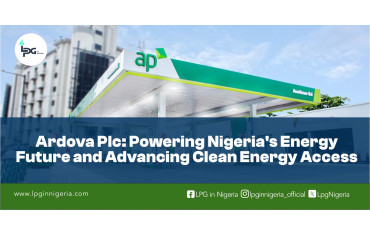
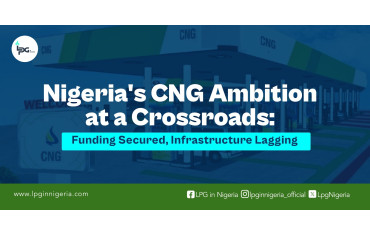
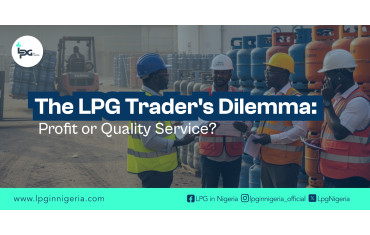
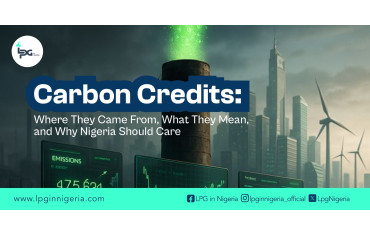
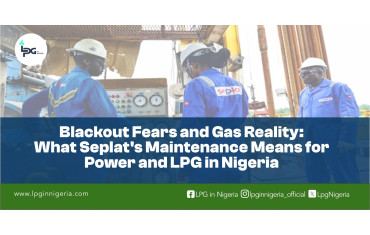
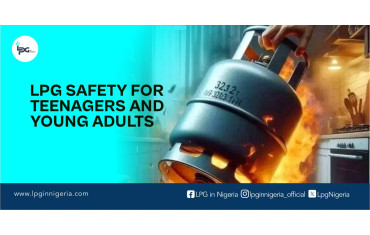





0 Comment.